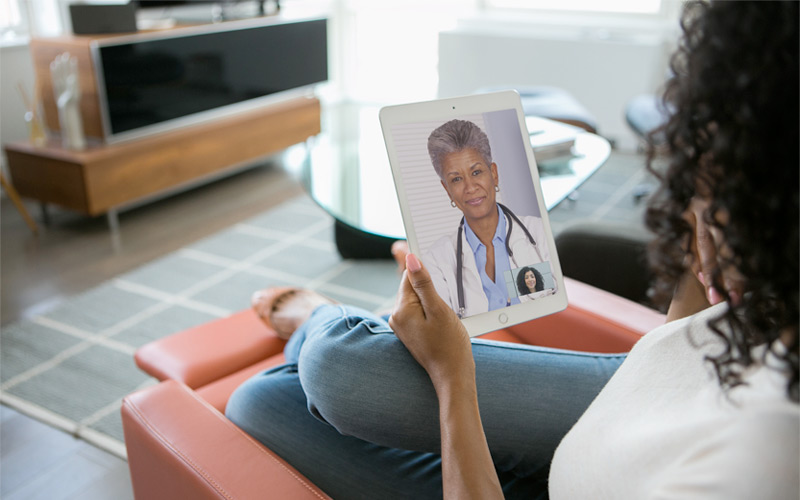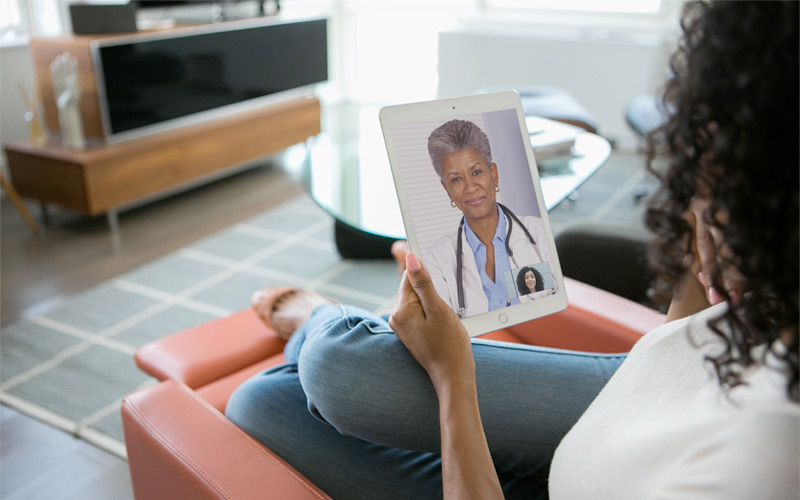 Barriala B. Kpuinen, a nursing student at Metropolitan State University in St. Paul, Minnesota, used her thesis to ask the question: “Would giving patients an iPad in their homes for telemedicine purposes help improve and maintain their health?”
Barriala B. Kpuinen, a nursing student at Metropolitan State University in St. Paul, Minnesota, used her thesis to ask the question: “Would giving patients an iPad in their homes for telemedicine purposes help improve and maintain their health?”
Kpuinen’s research led her to the Range Mental Health Center (RMHC) in Virginia, Minnesota. RMHC is a 250-employee agency that serves 7,000 patients annually across 6,800 square miles and five counties with multiple programs. Kpuinen brainstormed with Janis Allen, chief executive officer for RMHC, to determine which RMHC program the study could most benefit.
RMHC’s Challenges
Kpuinen and Allen chose RHMC’s outpatient mental health clinic because of the expectation that a virtual care program could also help RMHC address one of its own larger challenges: reducing no-shows and cancellations of outpatient therapy appointments. The large geographic area served by RMHC can create transportation issues for patients; inclement weather or the patient being too tired to commute the long distance – that result in cancellations. The severity of some patients’ chronic mental health conditions also causes many no-shows and cancellations. Together, these result in significant financial losses for RMHC.
The three-month telemedicine program was funded by Arrowhead Health Alliance (AHA), a northeastern Minnesota mental health agency that serves the Arrowhead Region in Minnesota and provides mental health crisis services through U.S. Department of Human Services (DHS). AHA gave RMHC 13 iPads – three with Wifi — and 12 patients were recruited for the program.
Vidyo was chosen for the video technology because AHA had an existing relationship with the DHS, Vidyo customers for more than a decade. AHA’s Telepresence Coalition serves 350 accounts on the DHS network, so AHA used Vidyo for Allen’s program as well. RMHC implemented the iPad program in September 2017. Vidyo was also installed on computers in two outpatient offices as well as on the laptops of seven therapy providers and one RMHC employee, all of whom provided telepsychiatry to patients.
To participate in the program, patients who cannot visit any of RMHC’s offices in person sign a telepsychiatry program agreement, after which a therapist delivers an iPad to the patient’s home. The iPads are preprogrammed for simple one-click access to the therapist’s Vidyo room. Patients are sent text reminders the day before their appointment; if a patient doesn’t show up for an appointment, the agency follows up by phone. If a patient misses multiple appointments, they discuss with the therapist whether they want to participate in teletherapy. If not, RMHC arranges to have the iPad returned to the office and given to another patient.
RMHC implemented the iPad teletherapy program in September 2017.
iPad Program Results
RMHC tracks patients’ iPad therapy progress with several assessments and a brief psychiatric exam. Allen noted that the program results showed:
- Some improvement in lowering patients’ depression scores.
- A reduction in the number of no-shows and cancellations. Prior to the study, patients met with their therapists approximately once every other month or two. During the study, they saw their therapists twice a month.
- The amount of time measured indicates promise that the consistent connection with a therapist is helpful.
That consistent connection is one of the top program benefits Allen cited, noting that a stable relationship with the same therapist positively impacts the patient. With Vidyo, if the therapist or patient moves away, they can easily maintain the relationship.
Most therapists and patients responded favorably to the program. RMHC measured patients’ experience using Vidyo technology in such areas as quality of connection and overall communication. The results showed that 100% of users rated their experience as “excellent” or “good.”
“Patients are really excited about having the option to connect virtually,” Allen continued. “One particular patient was so physically exhausted upon her arrival at one of her on-site appointments, and so worried about how she was going to get home, that she wasn’t able to engage effectively in any useful skill-building.”
Future Opportunities
With the success of the iPad program, Allen has some future plans for expanding the Vidyo solution. She would like to install it on more of RMHC’s providers’ laptops so that they can easily attend weekly clinic meetings which are held across the country. She also plans to work with law enforcement and RMHC’s crisis team to have Vidyo available to police officers and in emergency rooms so that RMHC can better coordinate crisis services.
“We’re talking about our crisis lines becoming part of the 911 system so that both parties can respond to a mental health-related call,” Allen explained. “This way, a police officer, equipped with Vidyo, can contact a mental health specialist when responding to a mental health-related call.” She noted that this would provide multiple benefits, including:
- Allowing a coordinated assessment to determine whether or not a patient needs to go to the ER, creating a team approach to helping an individual who is experiencing a mental health episode.
- Reducing unnecessary visits to the ER where patients have to sometimes wait hours to be assessed.
- Reducing filling ER beds with patients who are not being admitted for medical purposes
With one question by a student, RMHC found an effective answer to a big challenge in virtual care.
